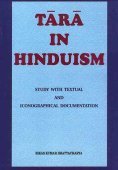Shava, Sāva, Sava, Śava, Śāva: 27 definitions
Introduction:
Shava means something in Buddhism, Pali, Hinduism, Sanskrit, the history of ancient India, Marathi, Jainism, Prakrit, Hindi, biology. If you want to know the exact meaning, history, etymology or English translation of this term then check out the descriptions on this page. Add your comment or reference to a book if you want to contribute to this summary article.
Shava has 27 English definitions available.
The Sanskrit terms Śava and Śāva can be transliterated into English as Sava or Shava, using the IAST transliteration scheme (?).
Languages of India and abroad
Sanskrit dictionary
[Deutsch Wörterbuch]
Source: Cologne Digital Sanskrit Dictionaries: Böhtlingk and Roth Grosses Petersburger WörterbuchŚava (शव):—m. n. [Siddhāntakaumudī 251,b,1.]
1) m. n. Leichnam [Amarakoṣa 2, 8, 2, 87.] [Trikāṇḍaśeṣa 2, 8, 60.] [Hemacandra’s Abhidhānacintāmaṇi 564.] [Medinīkoṣa v. 24.] [Halāyudha 3, 7.] [The Śatapathabrāhmaṇa 1, 8, 3, 18. 13, 8, 1, 1.] [Kāṭhaka-Recension 12, 3.] antaḥ eine Leiche enthaltend [Pāraskara’s Gṛhyasūtrāṇi 2, 11.] [Śāṅkhāyana’s Gṛhyasūtrāṇi 4, 7.] rūpa [2, 12. 6, 1.] camū [Śāṅkhāyana’s Śrautasūtrāṇi 14, 22, 19.] dahyā [The Śatapathabrāhmaṇa 12, 5, 1, 1.2, 2.] nabhya n. ein Stück von der Nabe des Leichenwagens [Kātyāyana’s Śrautasūtrāṇi 22, 3, 12.] [LĀṬY. 8, 5, 6.] [Ṣaḍviṃśabrāhmaṇa 3, 8.] antargataśave grāme [Manu’s Gesetzbuch 4, 108.] spṛś [5, 64. 85. 9, 178.] śavaṃ nirhareyuḥ [10, 55.] śiras [11, 72.] [Mahābhārata 1, 1683. 13, 2566. 14, 1944.] [Harivaṃśa 14763. 14768. 14772. 14854. fg.] [Suśruta 1, 108, 9. 170, 15.] viṣa [?2, 258, 7. Spr. (II) 1190. 1444. Varāhamihira’s Bṛhajjātaka S. 46, 71. 86, 45. BṚH. 25 (23), 13. Kathāsaritsāgara 4, 107. 18, 152. 154. 25, 183. 34, 186. 72, 18. 73, 286. Rājataraṅgiṇī 5, 271. WEBER, KṚṢṆAJ. 224. Mārkāṇḍeyapurāṇa 8, 104. fgg.] jīvant [Bhāgavatapurāṇa 2, 3, 23.] [Vetālapañcaviṃśati] in [Lassen’s Anthologie (III) 4, 11.] [Weber’s Verzeichniss 144, 3.] gandhin [Oxforder Handschriften 51,b,3.] sādhana [93,b,32.] dūṣitajala [282,a,23. fg.] pannaga [Mahābhārata 1, 1706.] am Ende eines adj. comp. f. ā [Kathāsaritsāgara 53, 158.] Vielleicht von śū = śvā (śvi) schwellen. Vgl. 2. śāva . —
2) n. Wasser [Medinīkoṣa]; vgl. śavas .
--- OR ---
Śāva (शाव):—1. (vgl. śiśu) m. das Junge eines Thieres [Hemacandra’s Abhidhānacintāmaṇi 338.] [Halāyudha 2, 347.] mṛgāḥ sārdhaṃ śāvaiḥ [Harivaṃśa 15439.] siṃha [?9105. KĀM. NĪTIS. 7, 4. Raghuvaṃśa 6, 3. 18, 36. Śākuntala 105, 14. Spr. 3254. Varāhamihira’s Bṛhajjātaka S. 104, 28. UTTARAR. 94, 6 (122, 12). Mārkāṇḍeyapurāṇa 43, 54. Rājataraṅgiṇī 3, 112. SARVADARŚANAS. 119, 21.] Vgl. mṛga (auch [Mahābhārata 3, 16164.] [Rāmāyaṇa 3, 24, 18.] [Śākuntala 51.] [Bhāgavatapurāṇa 4, 2, 12]).
--- OR ---
Śāva (शाव):—2. (von śava) adj. einem Leichnam angehörig, von einer Leiche herrührend: karau [Bhāgavatapurāṇa 2, 3, 21.] kapāla [Harivaṃśa 384.] kalevara [Sāvitryupākhyāna 5, 61] (śyāva [Mahābhārata 3, 16809.] śāva ed. Bomb., welches [Nīlakaṇṭha] ohne alle Noth durch śyāma erklärt). svatanūdbhava so v. a. entseelt [Harivaṃśa 1142] (śocya die neuere Ausg.). āśauca [Pāraskara’s Gṛhyasūtrāṇi 3, 10.] [Manu’s Gesetzbuch 5, 59. 61. fg. 74.] [Yājñavalkya’s Gesetzbuch 3, 18.] n. so v. a. śāvamāśaucam [Mārkāṇḍeyapurāṇa 32, 23.] śāvaśeṣāsthinicaya [Rāmāyaṇa 2, 77, 22] fehlerhaft für sāvaśeṣa, wie die ed. Bomb. liest.
--- OR ---
Śāva (शाव):—3. adj. fehlerhaft für śyāva [Hemacandra’s Abhidhānacintāmaṇi 1396, v. l.] und sonst.
--- OR ---
Sava (सव):—1. (von 1. su) m. Kelterung, Pressung des Soma [Yāska’s Nirukta 11, 2.] [Ṛgveda 1, 126, 1.] śye.o abhara.somaṃ sa.asraṃ sa.ān [4, 26, 7. 10, 158, 2.] [The Śatapathabrāhmaṇa 4, 2, 1, 23. 9, 3, 4, 5. 12, 8, 2, 13.] [Śāṅkhāyana’s Śrautasūtrāṇi 7, 15, 9. fgg.] = saṃdhāna (vgl. Bed.
4) h) [Medinīkoṣa v. 29.] st. dessen saṃtāna [Śabdakalpadruma] nach ders. Aut., offspring, progeny [WILSON.] n. the juice or honey of flowers; sprinkling the juice of the acid Asclepias [WILSON] nach [ŚABDĀRTHAK.] Wasser [Jaṭādhara im Śabdakalpadruma] m. der Mond [WILSON] nach [ŚABDĀRTHAK.]
--- OR ---
Sava (सव):—
--- OR ---
Sava (सव):—12. vgl. añjaḥ, apsava, kuṣavā, kṣatrasava, go (auch [Bhāgavatapurāṇa 3, 2, 32]), grāmaṇī, tīvra, prātaḥ, bṛhaspati, brahma, bhūmi, manu, manuṣya, varuṇa, vṛṣa, vaiśya, satya .
--- OR ---
Sāva (साव):—(von 1. su) m. Soma-Libation [Ṛgveda 10, 49, 7.] — Vgl. prātaḥ, sahasra und 1. sava .
--- OR ---
Śāva (शाव):—1. , śāba in den südindischen Hdschrr. nach [PISCHEL.]
Sanskrit, also spelled संस्कृतम् (saṃskṛtam), is an ancient language of India commonly seen as the grandmother of the Indo-European language family (even English!). Closely allied with Prakrit and Pali, Sanskrit is more exhaustive in both grammar and terms and has the most extensive collection of literature in the world, greatly surpassing its sister-languages Greek and Latin.
See also (Relevant definitions)
Starts with (+89): Savadhana, Savala, Savalata, Savam, Savanta, Savanti, Savara, Savari, Savarna, Savasa, Savasin, Savata, Shava-karma, Shava-karpata, Shavaata, Shavabhasman, Shavabhuta, Shavacchadana, Shavachchhadana, Shavadaha.
Ends with (+55): Abhishava, Adikeshava, Adityakeshava, Aikshava, Akeshava, Amritakeshava, Amritavarshava, Antahshava, Asava, Ashvashava, Athikeshava, Atitashaishava, Balekshava, Barhadishava, Bhaikshava, Bhatta keshava, Bhatta shri keshava, Dinakeshava, Ditishava, Gatashaishava.
Full-text (+366): Shavas, Shavakamya, Shavashayana, Savam, Shavaka, Yathasavam, Savasa, Shaba, Shomsavas, Shomsamas, Shomsava, Shavayana, Shavagni, Prasava, Shapa, Satyashavas, Anjahsava, Acaryasava, Pratahsava, Cavam.
Relevant text
Search found 71 books and stories containing Shava, Sāva, Sava, Śava, Śāva, Savā, Sāvā, Sa-va, Sa-vā; (plurals include: Shavas, Sāvas, Savas, Śavas, Śāvas, Savās, Sāvās, vas, vās). You can also click to the full overview containing English textual excerpts. Below are direct links for the most relevant articles:
Rig Veda (translation and commentary) (by H. H. Wilson)
Manusmriti with the Commentary of Medhatithi (by Ganganatha Jha)
Verse 5.84 < [Section IX - Other forms of Impurity]
Verse 10.55 < [Section VI - Other Functions of the Mixed Castes]
Verse 9.178 < [Section XXIII - The Twelve Kinds of Sons defined]
Sahitya-kaumudi by Baladeva Vidyabhushana (by Gaurapada Dāsa)
Text 10.171 < [Chapter 10 - Ornaments of Meaning]
Text 10.82 < [Chapter 10 - Ornaments of Meaning]
Vivekachudamani (by Shankara)
Yoga-sutras (Ancient and Modern Interpretations) (by Makarand Gopal Newalkar)
Sūtra 4.29 [ Dharmamegha-samādhi] < [Book IV - Kaivalya-pāda]
Rudra-Shiva concept (Study) (by Maumita Bhattacharjee)
2. Some derivations of the epithets of Rudra-Śiva (Introduction) < [Chapter 6a - The Epithets of Rudra-Śiva]
Related products
